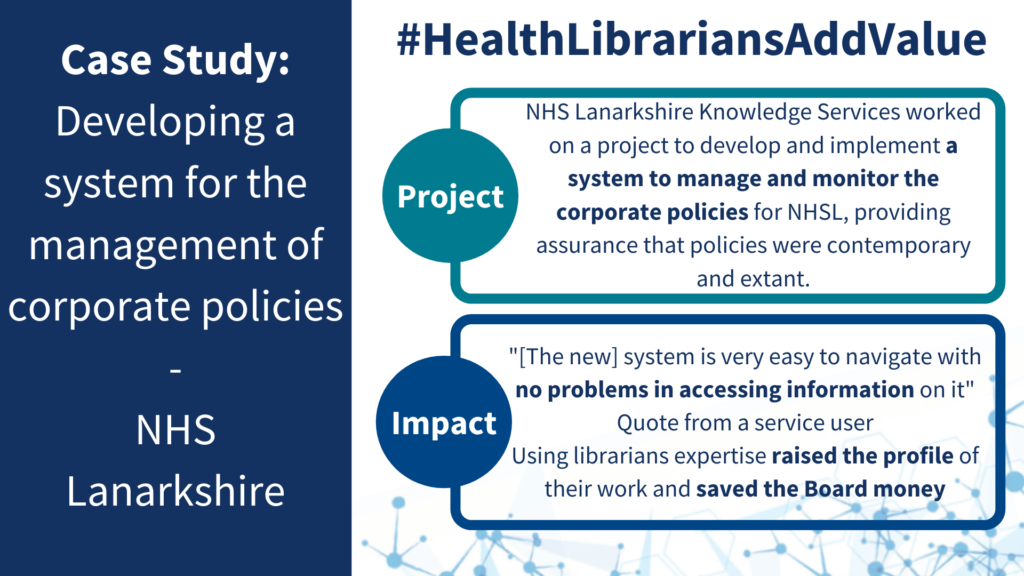Developing a system for the management of corporate policies
This case study is part of Health Librarians Add Value, a campaign run jointly by NHS Education for Scotland (NES) and CILIPS. It has been provided by Amanda Minns, Head of Evidence at NHS Lanarkshire (NHSL). Read other case studies here.
Outline of the project
The aim of the project was to develop and implement a system to manage and monitor the corporate policies for NHSL, providing assurance that policies were contemporary and extant.
A working group, jointly led by the departments of Corporate Risk and Evidence, was set up to manage and monitor corporate policies. Corporate policies are core documents within the organisation that provide a statement of principles and/or actions to ensure consistent decision making and resource allocation.
Although it has taken a number of years to get to the stage we are at now, this work has raised the profile of the skills and expertise of librarians in the board and their contribution to the process developed was and continues to be essential.
Impact
The outcomes of the project are valued by stakeholders. One piece of feedback from a survey carried out was:
[The new] system is very easy to navigate with no problems in accessing information on it
Amanda Minns, Head of Evidence said:
The project was important as we did not have a system that gave assurance to the board that staff could easily and consistently access the policies within the board. We are a large and complex organisation and ensuring staff know where and how to find information on particular topics is vital, especially as those topics are linked to required actions .i.e. maternity leave, securing data online etc.
The Corporate Management Team (CMT) reported on the project regularly. The work was recognised as having a positive impact on the work of the Board. Those involved have been able to evidence that they regularly meet key performance indicators (KPIs) for the process as required by internal audit. They were also able to maintain over 95% compliance within the process of ensuring corporate policies were in date.
Final comments
This was an excellent piece of work for librarians to get involved with as it saved the Board money (at the start of the process, they were going to go to an enteral company to design the process) and allowed the library staff to raise the profile of the skills they have in helping to develop systems that can be managed and controlled using the skills of librarians, for example cataloguing, data management, metadata, controlled vocabulary and negotiating skills.
This work was recognised within the Board and was published in Evidence Based Library and Information Practice 2020, 1, 5.1
